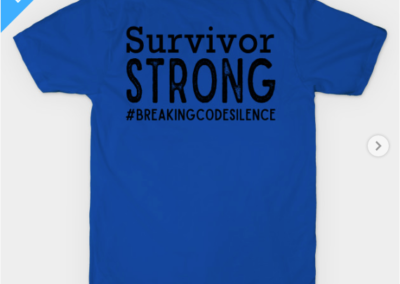In this post, we will explore the testimony of the Michael Davis who worked at Midwest Academy as the clinical director. While some of his testimony is shocking and implicates Ben, it’s also just as shocking to know that he never reported any of this to authorities when he saw it happen. In his testimony, Michael Davis states that he had child abuse training but as far as we know, he never reported any of the questionable things he saw at Midwest Academy. He does mention sending an email to multiple people inside of Midwest Academy to “cover himself” when one such ethical issue came up, but he did not appear to reach out to the authorities at any time in his testimony. The link to the full testimony will be below our highlights.
The average number of students while Michael Davis worked there was 90-100 students with about 20-30 staff members on any shift.
Q. When you worked there, was there an average number of students at any one time?
A. This is a guess, but I’d say around 90 to 100 maybe.
Q. So you maybe had 90 to 100 students. How many staff worked there?
A. Oh, my. I’m guessing, but 20 or 30 maybe on any shift.
Michael Davis was original hired as a therapist but promoted to clinical director by Ben Trane’s brother within a few days even though he wasn’t told what his new duties and responsibilities would entail.
Q. All right. What were you hired as?
A. I was originally hired to do therapy.
Q. And who were you interviewed by?
A. I was interviewed by Ben Trane. I think Colton was there. Shasta Heidbreder was there.
Q. Who is Colton?
A. Colton is Ben Trane’s brother.
Q. Did he work there too?
A. Yes.
Q. You said you were hired as a counselor. Did that change quickly?
A. Very rapidly.
Q. Tell us about that?
A. Well, about two, three days after I started working there, Colton called me into his office and as near as I can recollect said something to the effect that, oh, by the way, you are clinical director now.
Q. Were you expecting that?
A. No.
Q. As clinical director, then, you have this new job. What are you supposed to do with it?
A. That was not really articulated to me. You know, I had ideas about that as a therapist.
When Michael started working at Midwest Academy, there was only one part time social worker working alongside him. By the time it closed, there were three employees licensed to do therapy. That means that one therapist would be responsible for something like 30-33 students on average given the average number of students that Michael stated. Gary LaChapelle was not licensed in the state of Iowa.
Q. When you first started, how many counselors were there?
A. When I first started there was one social worker working there part time and a lady–and I don’t remember what degree she had though–she was doing counseling in the evenings, I believe. I didn’t have a lot to do with them, but they came in in the evenings and did some part-time individual counseling.
Q. So when you were hired, you were full time?
A. Yes.
Q. But you were at the time the only full time?
A. Yes.
Q. Did that change over time?
A. Yes. In fact, I was hired because Jim Posz, the other social worker, therapist was retiring. I believe that was the rationale anyway.
Q. So over time your staff grew. There was more therapists; right?
A. Yes.
Q. At the time that Midwest Academy closed, how many licensed counselors were
there or therapists?
A. There was three of us that were actually licensed. Yeah, there were three.
Q. And who was that?
A. That was Jane Riter. She was a licensed mental health counselor. And there was Raymond Forrester who just graduated from graduate school and was under practicum supervision there with me as a master’s level social worker. He was licensed as a master’s level social worker, which of course then permitted him to do therapy under my supervision.
Q. Was there someone named Gary–
A. Oh, yeah. Gary Lachapelle was there. I’m probably not pronouncing his name correctly. My understanding from Gary is what he told me, is that his license was out of Illinois, and it was a combined chemical dependency dual diagnosis kind of a license.
Q. But not licensed in Iowa?
A. Not to my knowledge. And I never saw his license either. I just–that’s what he told me.
Q. All right. So these people were part of your clinical director program?
A. I’m sorry?
Q. Or these people were part of this group, this clinical group?
A. At that point, at the end there, yes.
As the clinical director, Michael didn’t have much power to change things. He had to answer to Shasta Heidbreder (also one of the lead Traniacs trying to keep Ben from going to jail) and Colton (Ben’s brother) but ultimately Ben Trane was the ultimate authority over what happened at Midwest Academy.
Q. What were your duties as clinical director?
A. That’s really hard to describe. What I took them to be was to help make sure the academy ran in a clinically sound way, although I didn’t have much authority. I was mostly in an advisory, consulting capacity. I had no real authority to change anything or do anything as far as making any changes.
Q. Well, who did you answer to?
A. It depended on what time in my time there. At one point, I was answering to Shasta Heidbreder, Ben, Colton. There were times when people on the floor, program–senior program people had a lot of sway. And then later as things developed, Devon Dade and Raymond Forrester were appointed co-directors of the facility, and I reported to them.
Q. Where did Ben Trane fit into the hierarchy of things?
A. Well, Ben Trane had, you know, total overview and control of the school. Anything that happened there had to be approved by him, either indirectly or directly. And if he didn’t want it to happen, it didn’t happen. It was his school. He owned it.
Q. So he was the ultimate authority?
A. Yes.
The environment towards therapy in Midwest Academy was hostile and people had a negative impression of therapy and mental health in general. Due to this, Michael had difficulties getting information that was needed to get his job done.
Q. Let’s talk about when you first started. What was the environment like there?
A. For me, you mean?
Q. Yes. You first start at this facility. Did you have an impression, generally, of the work environment and the environment of the school?
A. The environment of the school was, frankly, rather hostile to me and cool. I immediately got the impression that most of the people working there had some pretty negative impressions of therapy and mental health in general. I had a difficult time in the beginning getting information I needed to do my job.
Q. So a lot of times the left hand wouldn’t know what the right hand was doing?
A. All the time the left hand didn’t know what the right hand was doing.
Q. That made it difficult for you to do your job?
A. Yes.
He did not believe there was any required qualifications or training for staff to be hired at Midwest Academy. Remember: These people were responsible for taking care of at-risk children – some of which might have serious mental illnesses. These staff were responsible for taking care of their needs and restraining them when needed but had no special training to do so.
Q. What were the required qualifications for staff to work there?
A. I’m not sure there were any specific qualifications.
Q. Did any staff have to have specific training on working with children?
A. Therapists did, yes.
Q. Besides therapists?
A. Not to my knowledge.
Q. Was there any training on working with troubled children required?
A. It would be– I would say, you know, the on-the-job training, the training by older staff, and by that I don’t mean necessarily in age, but older in terms of how long they had been at the facility. There were people there that had been there eight and ten years, and they were the ones that would train the new people coming on.
Q. Was there any mandatory child abuse training that was given to employees?
A. Not to my knowledge.
As far as Michael knew, Ben Trane was not a licensed counselor and made comments that indicated that he didn’t believe in mental illness. Despite not being a licensed counselor, Ben Trane had the final say on all things to do with the mental health of the children. His clinical director did not.
Q. In regards to the counseling, to your knowledge was the Defendant a licensed counselor?
A. Not to my knowledge.
Q. Would the–and when I say Defendant, I mean Mr. Trane, Ben Trane.
A. Yes.
Q. Would the Defendant make comments to you about his abilities at being a counselor?
A. He never made any comments about– directly to me about being a counselor. He made comments about–I would say something about a mental health issue, and he would indicate that he thought that was mostly just behavior. That sort of thing. But he never directly told me that he had a degree in counseling or whatever. I heard rumors to that effect, but those were just rumors.
Q. Sure. Were there times, though, when you would make recommendations or have certain ideas about certain kids regarding mental health and the Defendant would override you–
A. Yes.
Q. –on some things you wanted to do?
A. Yes.
Q. So when it came to the mental health of the kids, you didn’t have any final say on that?
A. I had no final say at all.
The policy of the school was not have children in the room alone with another staff member. Usually they had to have another staff member or student in the room with them. That was a policy that concerned Michael.
Q. Now, when the kids had a counseling session there was usually another kid in the room; correct?
A. With those of us with a license, that varied. Most of the time, yes. But we certainly could see kids without somebody else in the room. When anyone else other than one of my licensed counselors saw them, then my understanding, as far as my knowledge is concerned, they always had at least two students and one staff, or if not, there would be two staff and one student. There was never just one student and one staff with anyone except the licensed counselors.
Q. But when you did counseling sessions, you would have–sometimes there would be another student in the room?
A. Often. I’d say probably better than 50 percent of the time.
Q. That was normal?
A. That was normal, yeah. That was actually a policy of the school, which is one of the things I wasn’t completely in agreement with, but that was a school policy.
Q. And what were your concerns about giving a counseling session to a child when there’s another child sitting in the room?
A. Well, if I were going to be counseling that child about something, you know, such as some sexual abuse they had suffered or some serious issue, obviously it was not a good thing to have another student sitting there listening. And of course that’s not best practice in therapy to have someone else in a session. So when we only had one student–or I’m sorry–when we had two students in there, I was mostly doing, you know, skill kind of counseling, working with issues of how to deal with anger and frustration and just the day-to-day functioning of the student. But if it was something that was very serious and very personal, then they needed to have privacy.
Michael didn’t agree about everything that went on in OSS such as sitting in structure since it could be uncomfortable for children but he saw no problem with the motivational tapes being blasted over the speakers or the lights staying on all the time. He didn’t like to consider OSS a “punishment” and instead chose to call it a “consequence.” He agreed the different diet in OSS was a “consequence.” He did agree though that OSS was not always therapeutic.
A. There was a constant shift in evolution in the process in OSS the whole time I was there.
Q. Because when you came in and started working, did you approve of how it was being done?
A. Not entirely, no.
Q. What was the policy behind sitting in structure?
A. To get them to comply. Sitting on the floor in a particular position is uncomfortable. And the idea is, if I sit there long enough and get tired of it enough, then maybe I’ll go do what I need to do and go back and do homework and school work and join the program.
Q. And what was the policy behind the speakers with the motivational tapes?
A. Well, the motivational tapes were actually–I actually enjoyed them. They
were, you know, different kinds of speakers that are–a lot of them, as you say, motivational speakers that speak to large groups of students and children outside of the academy. And of course that has been recorded, and we use those to try and motivate them to do what they needed to do.
Q. Why did the lights have to be on all the time?
A. Because we needed to be able to monitor the students so they didn’t hurt themselves, someone else, or tear up the property which they frequently did.
Q. And the policy behind special meals in OSS?
A. The policy behind that I believe also was a form of consequence.
Q. You would agree that a lot of the OSS room structure was punitive in nature?
A. If what you’re asking me is it designed to be a form of punishment, I suppose you could call it punishment. I prefer to use the word consequence. It’s a consequence for behavior, yes.
Q. Would you consider those therapeutic?
A. I believe that sometimes it is necessary to be strict with children in order to get them to comply, and I believe that in some cases that can be therapeutic, not always.
When asked about whether Ben thought the strict structure of the school was appropriate for children, Michael said that he believed it and that Ben was a strict “behaviorist.”
Q. Did he ever explain to you why he felt this strict structure was appropriate for children?
A. Yes. I believe that–and this is, you know, two and a half years of conversation, I believe that Ben is a strict behaviorist, and he believes that children need to be taught consequences. Often the children that came there were not–they didn’t have consequences. That’s why they ended up there. And so the idea was to teach them that there are rules, and we can make choices, but we also have to consider the consequences. And I think that Ben believed deeply that that was the very best method of teaching children to be obedient to rules and to society.
Michael Davis did state that some children would get put into OSS for extended periods of time. Some would be in there for weeks.
Q. Now, you agree that some children in OSS were there for extended periods of time?
A. Yes.
Q. Some were there for days?
A. Yes.
Q. Some were there for weeks?
A. As near as I remember, yes. I don’t have the dates and times, but long periods of time, days on end, yes.
Q. Some were there for months?
A. I don’t believe that I know of anyone who was in there continuously for several months. They were in there a lot, most of the time perhaps. But as far as being there for, say, five months without ever coming out, no. They got out and they’d go back in; get out and go back in.
Q. And sometimes that would happen on the same day?
A. Oh, yeah, sure.
Q. They’d get out and go back in?
A. Yes. They would do things and get back in there. And sometimes, towards the end after we took the doors off, the kids would–they’d actually just get up and walk down there.
Q. Let’s talk about that. When you first started, the OSS was under that very strict structure; correct?
A. Yes.
Q. And when you started, did you suggest that some changes be made?
A. Over time I did. I was being very cautious when I first got there, very conservative, because my position was somewhat precarious. So I felt like I could do more good being there than not. So I was very careful and cautious about what I said.
Michael Davis agreed that OSS wasn’t always conducive to the best mental health for the children.
Q. And I assume that with your training and experience that you recognized that the use of those rooms wasn’t always conducive to the best mental health of these kids; right?
A. That is correct.
Shasta Heidbreder told Michael Davis he would be fired if he did certain things or tried to make certain changes.
Q. You were concerned if you said too much, you would lose your job?
A. In fact, at one point in time, Shasta Heidbreder told me that if I did certain things that I would be fired so, yes, I had feared that, but not from Ben. It was from the other staff
Ben Trane wouldn’t take his clinical director’s suggestions on changes that needed to be made. It wasn’t until DHS visited Midwest Academy that they started making changes. One of the changes that was required by DHS was to remove the doors from OSS. Unfortunately, they were put back on a short time later after DHS left. The excuse was that the children on OSS were attacking “rovers” (higher level children tasked with watching the children on OSS). Instead of assigning an adult to take care of the children on OSS and changing their procedure, Midwest Academy decided to put the doors back on OSS. The doors were unable to be opened from the inside so if there was a fire in the facility and no one let those children out, they wouldn’t be able to save themselves.
Q. So how did the Defendant respond to your suggestions?
A. It depended. There were so many times that we talked about various things, and he would indicate that he was going to look into it. And usually he would either do something about it or nothing would happen.
Q. And really nothing changed so such in the OSS rooms until March of 2015; is that correct?
A. I’m reluctant to be pinned down on dates, because I don’t remember the dates, but it was about the time when DHS became involved more and more.
Q. Okay.
A. That’s when major changes occurred.
Q. There was a point in time when DHS came into the school; is that right?
A. Yes. They had been in there several times.
Q. At one time they took out several kids; is that right?
A. Yes.
Q. Bxxxxxx and Dxxx?
A. There were several. I don’t remember all of the kids but, yes.
Q. Following that, you started to see some changes in the OSS; correct?
A. Yes.
Q. You said something earlier about– that you took some of the doors off; is that right?
A. My understanding was that DHS required that the doors be removed, or that they be not locked, or whatever, and then the kids started breaking the doors and tearing door knobs off and throwing them at us, and so I believe the deal was that we would just take the doors off so they wouldn’t be there. So it was an evolution because of what DHS was saying.
Q. But there was a point in time that the locks were put back on the doors; correct?
A. There may have been. I’m not really sure about that. I wasn’t really involved a whole lot with the programming.
Q. But you went down to the OSS to visit–
A. I did.
Q. –kids; correct?
A. I did. Several times a day, yes.
Q. So you knew at some point there was–
A. Yeah. There were doors put back on because we had kids that were becoming violent. And the idea, I think, was that, you know– Well, at one point the reason that occurred in my mind was because some of the students that were in OSS attacked the rovers, assaulted them, and I think the idea was we needed a way to contain them so that they could not do that. And that’s why the doors–or a door was put back on.
Ben Trane was very active in the school and children in OSS. Michael Davis communicated to Ben that he felt one of the victims had been in OSS for way too long.
Q. You would visit the students when they were in OSS?
A. Yes. That was one of the primary things I did during the day was in and out of there all day long.
Q. The Defendant would visit the kids there?
A. Yes.
Q. In fact, the Defendant was active in all parts of the school?
A. Yes, he was.
Q. Was there ever a point where you would say to the Defendant that it’s time that–that this kid needs to get out of this room–
A. Yes.
Q. –that they’ve been there too long?
A. Yes.
Q. What would happen?
A. Well, a few months into my time there we began to do that more and more. For example, I believe it was Bxxxxxx. He wasn’t eating like he should, so I took him out myself. I checked with Ben first, but I took him out. We went out in the courtyard, and I think I got him something from McDonalds and something else that he liked and, you know, tried to get him to eat and, you know, get him some fresh air and so forth. And so we did things like that quite frequently with the kids in there.
Michael Davis recommended to both Ben Trane and his brother Colton that staff have mandatory child abuse training. They both were resistant to the idea because they didn’t want staff to file those sort of reports with authorities. As a therapist and someone who had mandatory child abuse training, this should have been a huge red flag for Michael Davis.
Q. You said nobody had mandatory child abuse training there?
A. Not to my knowledge. Well, I did and the other therapists did, of course, but–
Q. Sure, if you had it before you came there–
A. Yeah.
Q. –then you had it; right?
A. Yes.
Q. Did you suggest to the Defendant that the staff should have mandatory child abuse training?
A. I suggested that to Colton.
Q. Are you saying you never said that to the Defendant?
A. Not in those words. We had discussions about child abuse training, Ben and I. And I indicated to him that I believed they needed to be trained in that way.
Q. And his response was what?
A. Well, his response was resistance as was Colton’s that–he was uncomfortable that just rank and file staff would be allowed to make–would be allowed to file those kinds of things. And so the gist of it was that he didn’t think that was a good idea.
Q. In fact, he made a statement similar to, if they’re going to make reports that we don’t want them to?
A. The gist of it was to that direction, yes. Again, it was months ago so I don’t remember the exact conversation but that was what I took from it.
Ben and Colton took away any power that Michael Davis had to deny prospective students on the basis of the child not being fit for Midwest Academy. According to Michael Davis, Ben didn’t like to say no – even if Michael felt the child’s issues were not appropriate for the facility. Ben felt that any child’s problems could be solved by locking down tight on them.
Q. Did you ever have concerns about placement of certain students at MWA?
A. Do you mean coming in, people coming into the facility?
Q. People coming in, people that were there?
A. Okay. Yes, I did. Towards the– three-fourths of the way through the time I was there, we got to a point where I understood that I had latitude to make a determination about students and whether or not they were suitable for the facility. I actually determined on a couple of different cases that they were not suitable for the facility and told the recruiter, the lady that did that work for us, that I didn’t think they were suitable for that. And I don’t remember exactly who it was, it was between Ben and Colton, but I was basically told that that decision would be made by them from then on; that I was no longer allowed to say no. I did that a couple of times and was told not to do that anymore.
Q. And in fact, in previous interviews with agents, you said that Ben told you that you couldn’t say no?
A. Yes. Well, not that I couldn’t say no, but that I didn’t get to have–I’m not the one that would make that call.
Q. You had the authority taken away from you; correct?
A. Essentially, yes.
Q. Because they didn’t like it–Ben didn’t like it that you had turned away some students that you didn’t feel were appropriate for the facility; correct?
A. I don’t think Ben liked the idea of turning students away at all. Exactly what his motive was, I don’t know, except that he didn’t want me to do that.
Q. Did the Defendant ever say things to you about that you just needed to lock down tight on the kids?
A. Comments of that sort were made quite frequently by various different people in the facility that were in programming.
Ben Trane didn’t have any sort of mental health degree or certification but was convinced that students didn’t have mental disorders and it was just their behavior that needed changing. He thought that children were faking their mental illness and needed to be “locked down tight.”
Q. (By Ms. Timmins) Did the Defendant, and I’m just talking about Ben specifically, Ben Trane, did he ever make comments to you about the kids faking their mental health?
A. The comments that he made–I remember one particular comment. I was talking about one of the students that I believed had a mental disorder, and he said, well, I think that’s just behavior. And he would make comments about–I would say something about, well, I think that’s depression or that student may have pervasive developmental disorder, and he would say, well, it’s behavior, meaning there needs to be a consequence and it will go away. That’s what I understood from it
Q. So let me ask you this question again then. Did you have conversations with Ben Trane where he made comments about you need to lock down tight on the kids?
A. He would make comments about locking down tight on the kids during our conversations, yes.
Q. He would make comments that they’re not really psychotic, they’re just faking it.
A. I want to be very careful here. I don’t remember him saying the words “faking it,” but that’s what I understood; that he believed that it would just be contrived and it was just behavior that they were doing on purpose to get out of things; it’s not because of their mental illness. That’s what I understood him to mean.
From the first week or two of the victims arrival at Midwest Academy, Michael Davis advised Ben Trane that his mental issues made the school a bad fit for that child.
Q. When you had the authority to decide about admissions taken away from you, what did the Defendant say to you about who gets to decide who comes and goes there?
A. I don’t believe he really said. I presumed from that that he and Colton would be making those decisions. I don’t remember him saying specifically.
Q. Did you ever advise him that Dxxx, or Axxxxx, and Bxxxxxx should not be there?
A. I did with Bxxxxxx for sure. I may have with Axxxxx. I don’t remember for sure.
Q. When did you start advising him that Axxxxx should not be there?
A. Well, it was fairly–
Q. I’m sorry. Bxxxxxx.
A. Bxxxxxx. Okay. With Bxxxxxx, it was fairly early in his time there, within probably a week or two if I were to guess, because he really just was not intellectually capable of functioning in that school the way he needed to.
Q. So Bxxxxxx gets there and you knew real quick that he shouldn’t be there?
A. That was my opinion from a clinical point of view, yes.
Months went by and Michael Davis and others grew more and more concerned about one of the victims and his time in OSS. He decided to send an email to Ben and CC multiple staff to formally advise that Midwest Academy was a bad fit for the student.
Q. So I’m saying when Bxxxxxx first got there and you knew right away that he shouldn’t be there and you told the Defendant that, did anything happen?
A. No. No. In fact, I think I– that’s when I wrote an e-mail to him about Bxxxxxx, I believe.
Q. And you did write an e-mail about February; is that right?
A. Yes. The reason I did that, frankly, was–that’s a professional covermy- bases. I wanted him to be–I wanted it in writing that I had advised getting him out of there, and so I sent him that email.
MS. TIMMINS: May I approach, Your Honor.
THE COURT: You may.
Q. (By Ms. Timmins) All right. I’m handing you what has been marked as State’s Exhibit 47. It is an e-mail dated Friday, February 6, 2015. Is this an email that you sent out to numerous people including the Defendant, Ben Trane?
A. Yes, ma’am.
Q. And was that e-mail in response to concerns that you had in the fact that Bxxxxxx should not be at the school?
A. That is correct.
MS. TIMMINS: At this time I’d ask to enter State’s Exhibit 47.
(State’s Exhibit No. 47 was offered in evidence.)
THE COURT: Ms. Schaefer, any objection to State’s 47?
MS. SCHAEFER: No objection.
A. Yes. I’d been in constant contact with Nurse Ivy. She and I had concerns about Bxxxxxx.
Q. Because he was in the OSS room all the time; right?
A. Do you mean is that why I had concerns? I had concerns because he didn’t need to be in that facility.
Q. Correct. But Nurse Ivy was contacting you all the time because he was in OSS?
A. She was concerned about him being in OSS. She was concerned about him not eating enough. And then of course that behavior suggested there at the bottom of the e-mail.
Q. And on this particular time, Nurse Ivy said that Bxxxxxx had defecated all over his room; he’s banging his head on the walls–
A. Yes.
Q. –and wanting to know what to do; correct?
A. Yes.
Q. And so what was your response to this group e-mail?
A. Do you want me to read it or–
Q. Yeah. Go ahead and just read it.
A. “Ben, without going into clinical detail, I believe this young man is beyond our ability to help him. In brief, this is because I suspect organic brain issues and possible cognitive deficits that are beyond our scope. I understand that Dr. St. Hill has requested neuropsychological testing. I think that at a minimum this is essential given the fact that he has incidents where he hits his head on the walls and doors. I am concerned that he needs a different environment. In the interim, I think we need to require him to wear a medically protective head device to prevent him hitting his head. Can you let me know your thoughts?” And then it’s signed by myself, and at the bottom there’s– Do you want me to read that as well?
Q. No. That’s fine. Okay. So this was February of 2015; correct?
A. Yes.
Q. But it was soon after Bxxxxxx arrived that you continue to say this kid does not belong here?
A. Yes.
Q. Okay. Was this kind of like you were getting to the last straw, this email?
A. That was– Yes. That was my saying, this was my written professional opinion.
Michael Davis felt that the child needed to get out of Midwest Academy immediately – even if that meant sending him home. Even though Michael had been telling Ben since the victim entered the school, Ben ignored the advice of his clinical director and it only started to dawn on him in February that Midwest Academy was not the right fit for the child.
Q. In your February e-mail to Ben about Bxxxxxx, at that point in time were you seeking to get him some sort of hospitalization?
A. He needed to be out of there. He needed to be somewhere else, even if it had to be home. Either get him to a different facility that’s appropriate or send him home, one or the other.
Q. To get him into a different facility, didn’t it require someone, a licensed therapist, to say he needs something beyond what we have?
A. Well, if you remember in that email I was talking about the testing. That testing would have substantiated that he needs to be somewhere else. I needed Dr. St. Hill to corroborate with me that this young man needs to be somewhere else. They don’t always just take somebody like me–like my word for it.
Q. But at least from February, and apparently earlier on, even Ben was recognizing that Bxxxxxx probably wasn’t in the best place?
A. If he was making those kinds of conversations, certainly, yes, he was beginning to recognize it.
After DHS removed both victims, Michael Davis was able to make some changes but he had to run everything by Ben Trane or Devon Dade. Devon Dade was the director of Midwest Academy in name only at that time but Ben Trane still had ultimate authority over everything.
Q. And it was after DHS pulled out Bxxxxxx and Dxxx that you finally were able to make some changes that you wanted to the OSS rooms; correct?
A. Yes.
Q. And the Defendant allowed you to do that?
A. To some extent, yes.
Q. What do you mean to some extent?
A. There was limits to what I could do and not do. I was not given full authority as clinical director. I would have to run anything I did by him or by Devon or someone before I did it.
Q. And actually it’s where shortly after DHS came in that the Defendant stepped down as the director of MWA and appointed Devon Dade; is that right?
A. Devon and Raymond Forrester, yes.
Q. So Devon Dade and Raymond Forrester
were now going to be co-directors? A. That was my understanding, correct
Q. What qualified Devon Dade for that job?
A. Probably the years of experience that he had there at the facility.
Q. Was Devon Dade a friend of the Defendant’s?
A. I’m sure he was friends with him. He’d been working there ten years, so I assume so.
Q. Raymond Forrester, he was friends with the Defendant?
A. Raymond Forrester and Ben, I think, met some summers before that when Raymond came there between college years to work at the facility. So again, yes, I believe they were friends.
Q. So even though the Defendant removed himself from the title of director, everybody is still answering to him; correct?
A. Yes.
As the clinical director, Michael Davis knew nothing about the sexual surveys. When he asked Ben about it, he claimed it was part of the seminars – directly contradicting many other witnesses testimonies that former students stated they received the surveys during regular class. Ben stated the it was being collected and entered in a database for statistical purposes.
Q. Were you aware that the Defendant was conducting sexual surveys?
A. No, ma’am.
Q. Did you ever receive any of the statistical information that was supposedly–
A. I knew nothing about any statistical information.
Q. You never heard of them?
A. Did not hear about it until the investigation started and I talked to–I was interviewed by FBI and DCI.
Q. Did you ask him specifically about doing the sexual surveys?
A. Yes.
Q. What did he say about that?
A. He told me those were being done during a particular part of the seminars and that it was an anonymous survey that was being collected; that the data was being put in a database; and then the surveys were being destroyed; that there was no information being kept about who the survey–who filled them out. They were–I was being told they were essentially anonymous, blind surveys.
Q. All right. So he admitted to doing them–or to handing them out and gathering the information?
A. Essentially, yes. We talked about that.
Q. But he told you it was for statistical purposes?
A. He told me that the information was being gathered. It was being put in a database on a computer, and then the surveys themselves were being destroyed.
Michael Davis didn’t know about the body image therapy. He didn’t think it was appropriate and never would have recommended doing it.
Q. What about body image therapy? Did you participate with that?
A. No, ma’am.
Q. Did you know it was even going on?
A. No. And I would have had extreme exception to it had I known that.
Q. Were you ever consulted by the Defendant about, is this appropriate to do?
A. No.
Q. Would you yourself have done it?
A. No
Michael Davis advised everyone at the facility that the sexual abuse victim would be better suited with a female family representative. Ben Trane made the decision to move her to his caseload against that recommendation.
Q. You knew [sexual abuse victim]?
A. Yes, ma’am.
Q. When she first came to the school, her family rep was Callie Peterson; correct?
A. That’s correct. Well, now, I think– I’m not sure about that. I think it may have been somebody else to begin with, but shortly after she got there it became her.
Q. At some point the Defendant made the decision to become [sexual abuse victim]’s family rep; is that right?
A. Apparently, yes.
Q. Did you advise that [sexual abuse victim] would be better suited with a female family rep?
A. I advised everyone at the facility that she should be with female reps only.
Q. Was he also a family rep for Mxxxxx?
A. I believe he was, but I’m not positive.
Q. Did you also advise that she would be better suited with someone–or to have a female family rep?
A. I don’t remember specifically saying that about Mxxxx, but I may have. I don’t know.
Q. And there were female family reps; correct?
A. Sure.
Q. There was several that could have been assigned to [sexual abuse victim]?
A. Uh-huh (in the affirmative).
Q. Is that yes?
A. That is yes, correct.
Q. The Defendant only had a few students on his caseload when he was a family rep; correct?
A. I don’t know how many he had. I know there were several. I’d say five or less. I don’t know.
The family reps had absolute control over the students and what they could do. He did witness the sexual abuse victim and Ben Trane together on multiple occasions walking through the halls or at Ben Trane’s residence.
Q. And you agree that the family rep has a lot of control over the students?
A. Absolute control, yes.
Q. Absolute control?
A. Yes. The family reps–nothing happened unless they approved of it.
Q. Were there times where you would see the Defendant with [sexual abuse victim]?
A. I’m sorry?
Q. Were there times that you would see the Defendant with [sexual abuse victim]?
A. I saw him with her on several different occasions.
Q. Where?
A. One time I saw him, and there was another student with them, but they were in the–out in the parking lot moving from his residence in a company vehicle around to the back, I assume to do work as he often did with them, with the kids. I saw him there. I saw her at one point in the yard at his residence with him and Layani and all of his children, and she was over there at that time. And I would see him occasionally in the hallways talking with her or walking with her.
Q. And that’s not so much out of the ordinary in the sense that the Defendant did take kids–
A. Absolutely.
Q. –to do service projects and off campus and things like that?
A. Yes, yes.
Q. There was a point in time where you learned that [sexual abuse victim] had alleged that the Defendant–that there was something going on between her and the Defendant; correct?
A. That is correct.
Q. How did you find out?
A. Jane Riter, my assistant clinical director, and her family–no, it wasn’t her family rep. She was actually doing some therapy work with [sexual abuse victim]–came to me with a letter that–and I don’t remember where she got it–but it was written– [sexual abuse victim] had written it, and it alleged abuses by Mr. Trane. And she wanted to know–wanted to let me know about it, and then of course what we should do about it. And then, of course, what we do about that is report it.
Cheyenne informed the upper management of the abuse allegation and later informed DHS. A few days later, she was fired.
Q. All right. So it was determined that this came out because Cheyenne Jerred had talked to [sexual abuse victim] , and Cheyenne told upper management; correct?
A. I’m sorry?
Q. Cheyenne went with the information to upper management; correct?
A. I’m not sure how the letter got to Jane to be honest with you. It could have been Cheyenne that brought it. I don’t know.
Q. And now we’re at the point that you’re in this meeting with Cheyenne Jerred; correct?
A. Yes.
Q. So what discussion is had with Cheyenne?
A. The discussion was about what she was doing, what her duties were, and what she was and wasn’t to do.
Q. And during that conversation with Cheyenne, did she inform you, the people in the room, that she had already called DHS?
A. It was during that meeting she informed us. I’m not sure exactly when, but yes, she told us pretty much as soon as she came in that she had called DHS.
Q. And at a later point in time, Cheyenne Jerred was–a couple days later Cheyenne Jerred was fired; correct?
A. That is correct.
When Michael Davis found out that Ben Trane was taking girls to Victoria’s Secret, he had a talk with him and told him he should stop it. He did not feel it was appropriate for any man to be taking female teenagers to Victoria’s Secret. Ben didn’t think it was a big deal.
Q. During your time working there, were you made aware that the Defendant was taking the girls to Victoria’s Secret?
A. There was a point where I heard mthat kind of secondhand, yes.
Q. And you did what with that information?
A. I asked Ben about it. I asked himwhat, you know–I don’t remember the exact conversation. I was a bit incredulous about it. I didn’t think that was a good idea.
Q. So you went to the Defendant, you told him you heard he was taking girls to Victoria’s Secret, told him that wasn’t a good idea; correct?
A. To that effect, yes.
Q. And what was his response to that?
A. I don’t know there really was a verbal response per se. It was just– there was no real verbal response back. It was just some facial expressions, I guess.
Q. Did he tell you it was no big deal, that he could do what he wanted?
A. That’s the impression I got, that he thought it was not a big deal. Out of the totality of our conversation, I felt that he believed that it was not a big deal, yes.
Q. And you, in fact, told him it should stop; right?
A. I don’t remember if I told him that, but I probably did. I certainly would have if I’d have thought about it, yes. I don’t think anybody–any man should be taking teenagers to Victoria’s Secret, period
Ben was a strict behaviorist while Michael Davis understood one could not be this strict when dealing with mental illnesses or mood disorders. This was a stark philosophical different the two had for their entire working relationship. One of the victims was a clear example that you couldn’t cure mental illness with forcing behavioral changes.
Q. And you indicated that Mr. Trane clearly came from a very strict behaviorist philosophy?
A. Yes.
Q. What does that mean exactly?
A. That means, essentially, that all of us are required to have consequences for things that we do. So if the consequence is consistent, if it’s direct and fair, then we’re generally going to do the right thing if there is a consequence. And the problem with many of these students that we had, they were conduct disordered, behaviorally-disordered kids, and they hadn’t been taught to obey rules. They had been taught just the opposite. So the idea was to get them to
understand that I get to choose my behavior, but I don’t get to choose my consequence. And none of us get to do that.
Q. Was a lot of the time between you and Ben– You said he met with resistance?
A. I’m sorry?
Q. When you said you met–Ben met with some resistance to some of your ideas, do you feel that that was that strict behaviorist coming out in him?
A. Yes, yes. It was Ben’s deep belief that the behavioral approach is best. That’s a difference of opinion.
Q. And for the two and a half years that the two of you worked together, you continued to attempt to evolve that theory in him?
A. I did except I am also a behaviorist. I believe that behavior and consequence are very important. I use that today in my therapy sessions with adults, children, everyone.
Q. Whereas you recognize sometimes mental health and the need for psychotherapy might not be consistent with behavioral therapy?
A. With people who have serious mental illnesses who are not really capable of the cognitive ability to understan consequence and behavior and how those are related, then we’d have to use a different approach.
Q. Is that what you did with Bxxxxxx?
A. Bxxxxxx would be a perfect example of that. Bxxxxxx was not intellectually capable of understanding, at a level he needed to, to really make use of consequence. He sometimes would get– He didn’t understand cause and effect. If one of us touches a hot stove, we pull our hand back, ouch, that hurts. He might touch it four or five times and, ouch, ouch, ouch, ouch, and still not get it. Don’t touch the stove. So he wasn’t
able to do that in a way that most people could.
Q. And with Bxxxxxx did you as a clinical staff, as well as with the Defendant, did you try various things to try to get Bxxxxxx to understand some of those things?
A. We tried everything we could think
of, yes, ma’am.
Ben put all the “difficult children” together in a newly formed Pride Family including one boy who was a convicted sex offender.
Q. The Pride Family, a decision was made to put the difficult boys all in one group; correct?
A. Yes.
Q. An age range of about, what, 12 to 17?
A. In that range, yes.
Q. One of the boys in there had been convicted as a sex offender?
A. Maybe, probably.
Q. You were aware of that?
A. Do you mean was I aware of that when we put him in there?
Q. Yes.
A. No.
Q. Were you made aware of that at a later point?
A. Probably.
Q. Whose decision was it to make the Pride Family?
A. Well, of course that all rested with Ben. Any of that sort of thing had to go through him.











